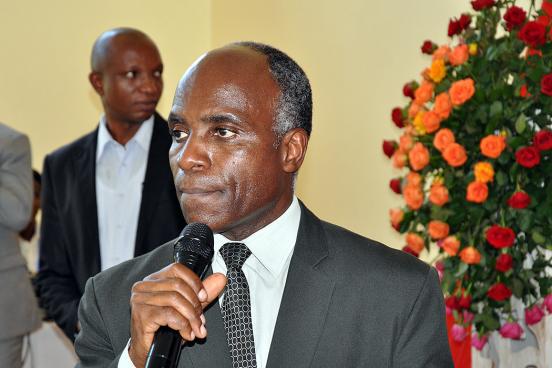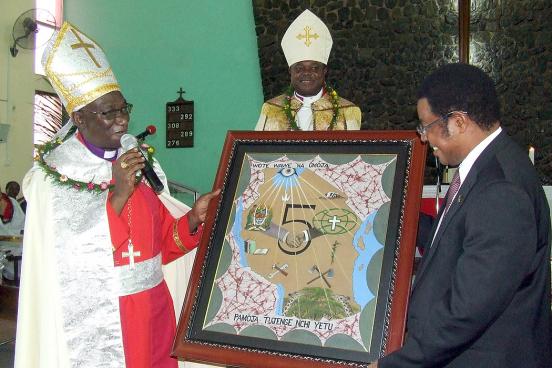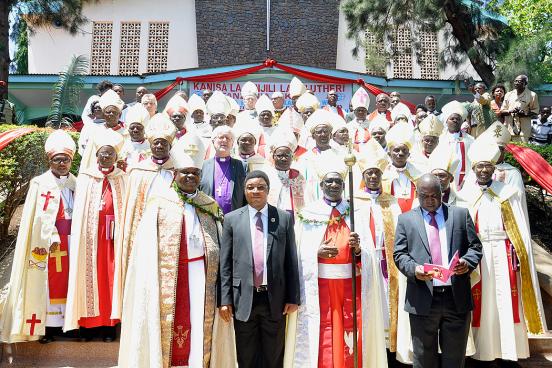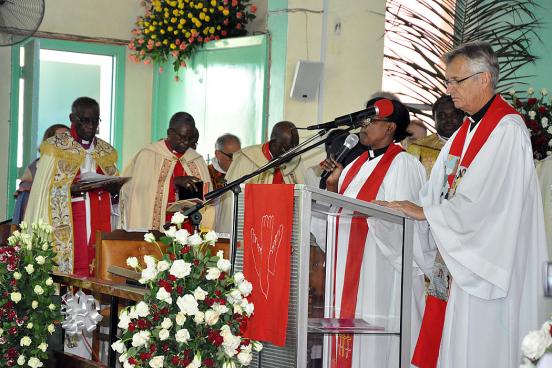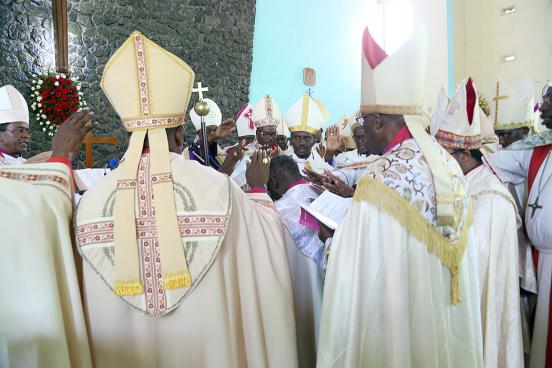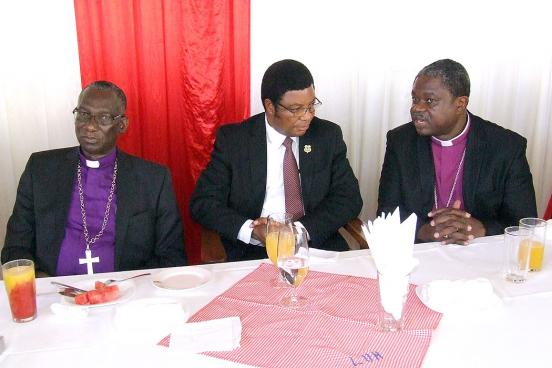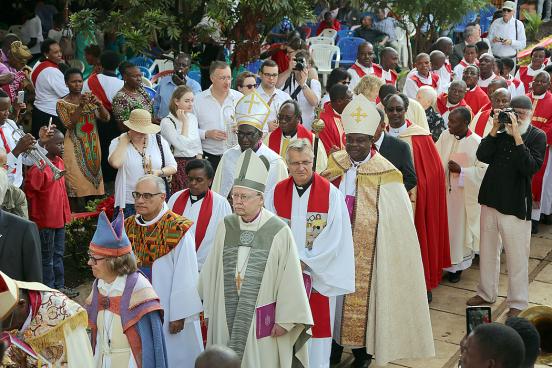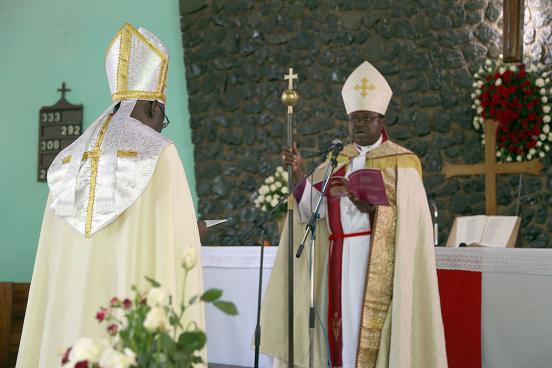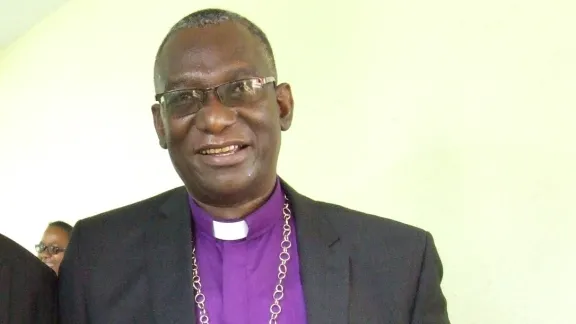
New presiding bishop of the Evangelical Lutheran Church in Tanzania says the church in Tanzania needs to better serve the community. Photo: ELCT
Tanzanian prime minister at installation
The new Presiding Bishop of the Evangelical Lutheran Church in Tanzania (ELCT) has called on the church to serve the community by collaborating with the government and to resist operating like a private company. Bishop Dr Fredrick Onael Shoo made made the call at his installation, which was attended by the Tanzania prime minister. “The church belongs to Christ whom we all serve and believe in. The mandate of the church is to serve the people in a holistic manner–spiritually, mentally and physically,” he said.
He encouraged the government to intensify the fight against corruption in society: “The boils need to be burst thoroughly in a systematic way and caution needs to be taken in order to be fair. We support the government in these efforts to rid the country of the corruption in society, but avoid victimizing those who are innocent.” He called for an end to the political impasse in Zanzibar, where results of the October general elections were nullified over malpractices, and new elections are scheduled for March this year.
Tanzanian Prime Minister Kassim Majaliwa and other officials represented the government at the installation. The prime minister praised religious institutions and in particular the ELCT for contribution to the country’s social services, especially to the education and health sectors. He welcomed Shoo’s support in the fight against corruption and in efforts to ensure affordable primary and secondary school education. Majaliwa promised to address concerns raised by the ELCT leader.
Global Lutheran church leaders, ecumenical guests, thousands of members of the Evangelical Lutheran Church in Tanzania, and representatives of other faiths also attended the installation of Bishop Shoo.
The public voice of the church
The Lutheran World Federation (LWF) General Secretary Rev. Dr Martin Junge preached at Shoo’s installation, and encouraged the ELCT to be a church that serves without “leaving anyone behind.” He underlined its contribution to the Lutheran communion, and leadership in Tanzania and the region. “People are in desperate need of signs of hope, looking up to the hills to find inspiration and encouragement to leave conflict behind and cope with their differences in peaceful ways,” he said in his sermon, drawing on Luke 15:2-7.
Junge thanked the ELCT for its “steadfast commitment” to the Tanganyika Christian Refugee Service, which has cared for hundreds of thousands of refugees from East Africa’s Great Lakes region since 1964. The LWF associate program also works with local communities, empowering them to improve living standards.
Junge said today’s challenge of people’s marginalization, due to the injustices of climate change, the ever-growing gap between the rich and poor, and prevailing civil conflict, require the public voice and actions of the church at local and global levels. “Your way of journeying, witnessing and serving together matters far beyond the realm of the church,” he emphasized.
Bishop Heinrich Bedford-Strohm of the Evangelical Lutheran Church in Bavaria, Germany, spoke on behalf of church Leaders from across the globe. “Ours is not a relationship between churches and leadership but it is a partnership between people across countries, having a unity that is expressed in a bigger picture that we are one in our Lord Jesus Christ whom we all serve,” he said.
6.5 million Lutherans
Shoo, 56, was elected presiding bishop at the August 2015 ELCT General Assembly. He will continue in his leadership of the ELCT Northern Diocese, which he served as assistant bishop from 2004 until 2014 when he was elected bishop. He holds a PhD in divinity from the Augustana Divinity School in Neuendettelsau, Germany. He pursued his undergraduate studies at the ELCT Makumira Lutheran Theological College (today, Tumaini University Makumira). From 1995 until 2003, he served as Provost of Mwika Theological College in the Kilimanjaro region.
Outgoing Presiding Bishop Dr Alex G. Malasusa, who has led the Tanzanian church for eight years, presided over the installation. He is bishop of the ELCT Eastern and Coastal Diocese, and is the LWF Vice-President for Africa.
The ELCT joined the LWF in 1964. Its 6.5 million members are organized in 24 dioceses, each led by a bishop.
ELCT communication coordinator, Elizabeth Lobulu, contributed to this story.
